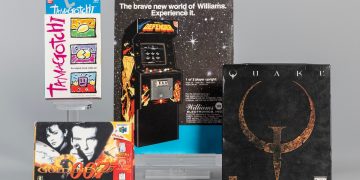You ever get that feeling like someone finally hit the jackpot after trying a million times? That’s kinda what Intel Foundry’s 18A process moment feels like. Rumor has it, they’re getting swarmed by the big tech guys. Yeah, the giants.
Okay, so Intel’s chip game has been like this scrappy underdog trying to punch up, right? I mean, they’re not just in this for the cash (though who am I kidding, who isn’t?), but they want a piece of the spotlight pie too. Apparently, TSMC has been soaking up all the limelight — thanks, in part, to some deal with Trump. Folks are now cozying up to TSMC’s digs in the US as if Taiwan’s not the go-to anymore. Wild, right? Enter Intel with the 18A node — like a knight with a shiny new sword. Or chip, I guess. They’re chatting with NVIDIA, Microsoft, and Google about it. It’s like they’re planning a coup against TSMC’s N2 process.
Intel was all about flexing this 18A thing at that Direct Connect 2025 shindig, crowing about it being “the most advanced process manufactured in the US.” Bold moves. The specs—they say—are a head-to-head with TSMC’s N2, doing the dance with SRAM density like pros. And by now, Intel might actually have pulled a rabbit out of a hat here because everyone’s buzzing about it. Good vibes all around.
Here’s a pic they threw up at some point. Imagine a bunch of tech guys nodding like they’re seeing a magic trick unfold.
Now, apparently, a shake-up at the top with this new CEO, Lip-Bu Tan, has folks hyped. This dude’s got visions — like, literal visions — about automation and packaging and all that jazz. Maybe he’ll scrap the old “IDM 2.0” plan and lead Intel into the promised land or something. Who even names these strategies, seriously?
But yeah, another reason everyone’s looking at 18A — seems like TSMC’s production lines are cramped, like a subway at rush hour. Intel’s got room to breathe and do its thing. Samsung Foundry’s still huffing to catch up. They’re in the running, but Intel might actually have the upper hand here. Or maybe it’s just a brief flash. Who knows?
Anyway, that’s the deal with Intel’s latest play. Who would’ve thought, huh?










![[Review] Lost Records: Bloom and Rage – Tape 2 for PS5 [Review] Lost Records: Bloom and Rage – Tape 2 for PS5](https://www.8bitnewsroom.com/wp-content/uploads/2025/05/Review-Lost-Records-Bloom-and-Rage-–-Tape-2-for-360x180.jpg)




































